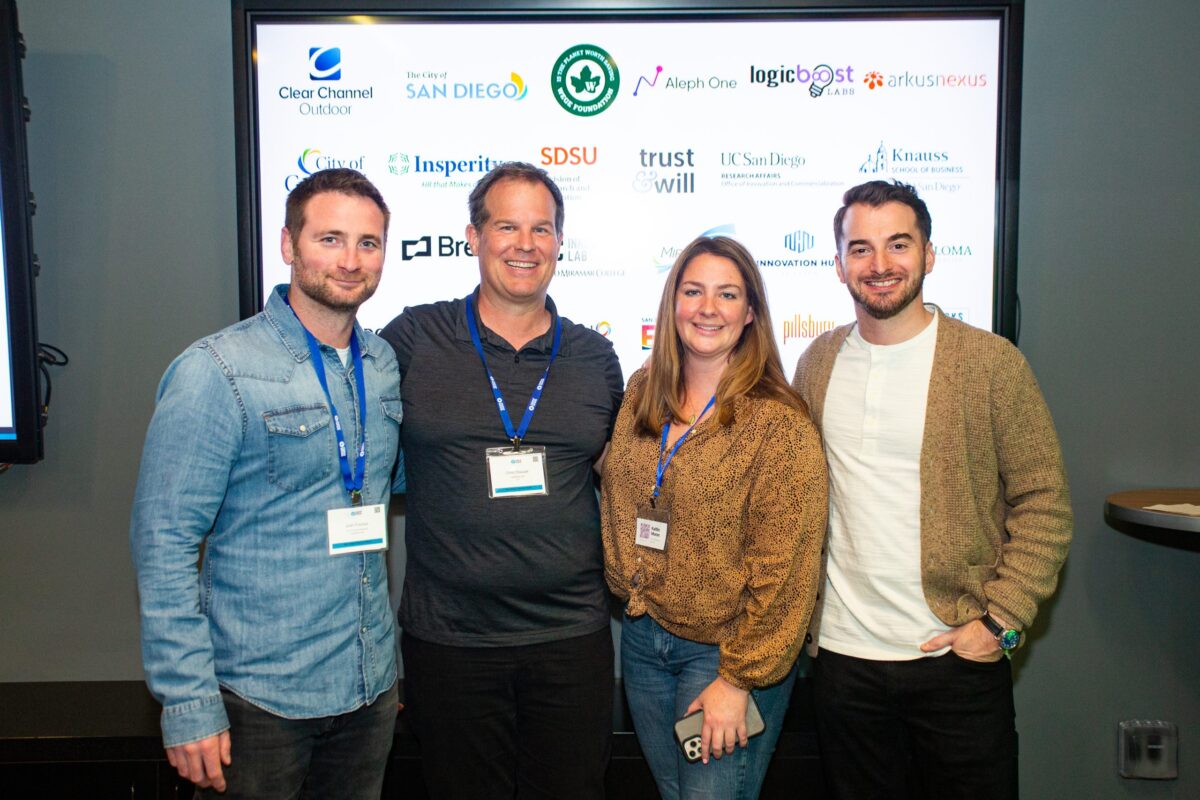With its roots in the DMV, a California accelerator program is returning to help DC startups.
LogicBoost Labs, which was established in San Diego, California in 2019, officially launched locally at DC Startup Week in 2022. The accelerator primarily invests in SaaS companies, offering anywhere from $150,000 to $300,000 for founders. LogicBoost primarily aids companies in going from zero revenue to $1 million in recurring annually.
This summer, LogicBoost made its first local investment of $300,000 into marketing software company Blueprint.
LogicBoost has been especially helpful in marketing and sales to get Blueprint’s product out in the world, Blueprint founder and CEO Abtin Buergari said. He also noted that there were folks at LogicBoost who could help Blueprint’s technical team address some core issues preventing the company from scaling.
“I’m trying to deal with all these things that I haven’t done and LogicBoost was like, ‘Look, we’re here for you. We want to build this, we want to scale it, we want to grow it. Let’s do it together,’” Buergari said.
LogicBoost Labs was created by Jonathan Cogley, the founder of DC-based access solutions provider Thycotic. TPG Capital bought Thycotic in 2021. LogicBoost has leaders in San Diego and DC, and they’re looking to boost the accelerator’s local presence.
VP of Marketing Josh Frankel said LogicBoost’s cofounders started the accelerator to give the hands-on help that was missing at Thycotic after it received its first investments. Had the Thycotic team had access to that, Frankel said, the company might have moved faster and maybe even exited sooner. Now, LogicBoost looks for B2B SaaS companies, typically about two to 10 people in size, in need of some assistance.
“We’re trying to help those founders who build a product, maybe they get their first customer or second customer and then they say, ‘Now what? What do I do now?'” Frankel told Technical.ly.
The LogicBoost method, according to Frankel, is intense engagement in the first three to six months that can help a company ramp up in a short time. Often, it includes 90- and 120-day plans and benchmarks to keep founders on track. So far, the accelerator has primarily worked with West Coast companies in a virtual setting, but it’s looking to invest in and engage more with DMV companies in person.
In selecting startups, Frankel said, LogicBoost looks for founders who really understand the business they’re trying to sell to. In Blueprint, LogicBoost was attracted by how the company started off building a product to solve an internal problem. When your first client is yourself, Frankel said, you do a really good job of building something that will really work for others.
Blueprint, Buergari said, was born from a digital advertising agency in the late 2010s. In 2021, the company began working with big media buyers, and he noticed a lot of recurring patterns and problems that software could fix. Eventually, it became a separate startup, offering analytics technology for various ad platforms.
In advertising, Buergari said, there’s often a lot of data seepage, which can lead to unclean data. That can mislead startups, and encourage spending on the wrong things.
“My thing was: “Let the marketer be a marketer, stop trying to make them into a data scientist, stop trying to move them in this analytical direction,” Buergari said. “Just give them the answer. Put the answer front and center, focus only on what matters. Let the rest of it fade into the background.”
As the accelerator makes its moves and brings more funding into DC, Frankel hopes that many, like Blueprint, can find their next steps. According to Frankel, many indicators show that the DMV should have tons of successful companies from the area, but he doesn’t feel that’s been the case.
“[At Thycotic] we saw success in DC and had an amazing exit, but that’s kind of a rare story here,” Frankel said. “So part of this is wanting to see that happen in our backyard again.”
Before you go...
Please consider supporting Technical.ly to keep our independent journalism strong. Unlike most business-focused media outlets, we don’t have a paywall. Instead, we count on your personal and organizational support.
3 ways to support our work:- Contribute to the Journalism Fund. Charitable giving ensures our information remains free and accessible for residents to discover workforce programs and entrepreneurship pathways. This includes philanthropic grants and individual tax-deductible donations from readers like you.
- Use our Preferred Partners. Our directory of vetted providers offers high-quality recommendations for services our readers need, and each referral supports our journalism.
- Use our services. If you need entrepreneurs and tech leaders to buy your services, are seeking technologists to hire or want more professionals to know about your ecosystem, Technical.ly has the biggest and most engaged audience in the mid-Atlantic. We help companies tell their stories and answer big questions to meet and serve our community.
Join our growing Slack community
Join 5,000 tech professionals and entrepreneurs in our community Slack today!

The person charged in the UnitedHealthcare CEO shooting had a ton of tech connections

From rejection to innovation: How I built a tool to beat AI hiring algorithms at their own game

Where are the country’s most vibrant tech and startup communities?




